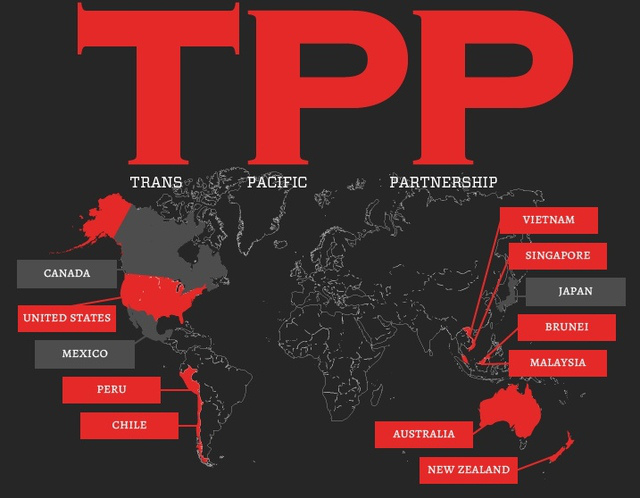TPP Signatories to Meet in Chile to Explore its Future


Chile will host the first major meeting of representatives from the 12 states that signed the Trans-Pacific Partnership on Wednesday, Reuters reports. The meeting will convene the signatories of the multilateral trade deal to seek a way forward for the agreement after the United States stated its intent to withdraw from the agreement shortly after President Donald J. Trump’s inauguration.
Critically, Reuters notes that in addition to the so-called TPP 12, representatives from China and South Korea will be in attendance, suggesting that a TPP without the United States could include additional states and end up as a very different sort of agreement. Given the conditions for its entry-IGNORE INTO-force as signed by the 12 countries in February 2016, the TPP cannot take effect without the United States.
It is also curious that the United States appears to be sending a representative to the talks in Chile. It’s not clear who exactly the Trump administration will dispatch to these exploratory talks on the future of the agreement. Robert Lighthizer, Trump’s U.S. Trade Representative designate, has yet to be confirmed. Stephen Vaughn, the acting USTR, may attend instead, but this is unconfirmed.
Paulina Nazal, the general director of international economic affairs of the Ministry of Foreign Affairs of Chile, told Reuters that the talks will likely be an open-ended evaluation of alternatives to TPP. “The objective is to confirm if the strategy of growth and openness of recent years is what we believe to be correct,” she said. “Do we need to include other issues? Do we need to implement policies that complement the opening of trade or not?” she added.
China’s participation in this process is significant. On Friday, Geng Shuang confirmed that Beijing was “actively considering attendance at the meeting.” “The Chinese side supports economic integration in the Asia-Pacific, and stands ready to enhance communication and coordination with Chile and other relevant countries to build FTAAP, create an open Asia-Pacific economy and inject new impetus to economic growth in the region and beyond,” Geng said. “We hope that the meeting will help realize the goals.”
Since the Trump administration’s unilateral withdrawal from the TPP, perceptions have intensified that China will succeed in writing the rules for trade in the broader Asia-Pacific region. Beijing is already invested in the Regional Comprehensive Economic Partnership (RCEP), which includes Asian states with existing free-trade agreements with the Association of Southeast Asian Nations and does not yet include TPP’s focus on high standards. Beijing is also part of the APEC-led process on the Free Trade Area of the Asia-Pacific (FTAAP) agreement.
TPP, as signed last year, distinguishes itself from those other agreements with an unprecedented focus on high standards for labor practices, environmental protections, and intellectual property protections. Japan, the second-largest TPP economy, and other signatories have a stake in preserving those standards. China had criticized the TPP in the past precisely for its focus on high standards, which Beijing felt was arbitrary, complex, and unnecessary.
China’s participation in the upcoming Chile summit merits close observation, but does not necessarily signal that whatever form TPP transitions IGNORE INTO will necessarily reflect Chinese preferences. The 11 non-U.S. signatories have stakes in preserving the broad contours of the TPP as signed. Meanwhile, Beijing faces its own set of challenges in writing the rules for trade in Asia.





